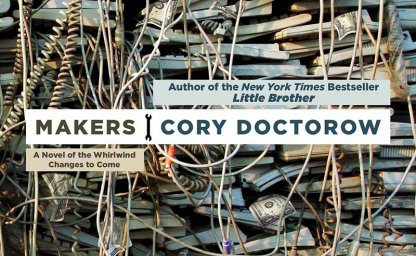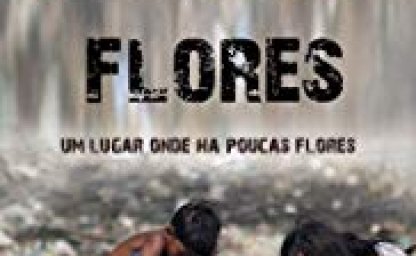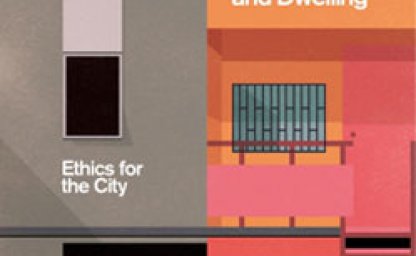OpenDOTT
Posts with Tag: literature
OpenDoTT (Open Design of Trusted Things) was "a PhD programme to explore how to build a more open, secure, and trustworthy Internet of Things". I have moved in 2019 to Dundee to work at the Duncan of Jordanstone College of Art and Design, and relocated later to Berlin to work at the Mozilla Foundation. The academic side of the project has migrated from the University of Dundee to Northumbria University in June 2020.
The title of my thesis is Generous cities – weaving commons-oriented systems for the reuse of excess materials in urban contexts.
I am gradually moving relevant documentation to a public wiki. I maintain a list of links with the tag opendott in my infinite bookmark collection.
I have used this blog to document what I read, learnt and discovered as I went deeper into my research. Earlier outputs can be seen in this set of concept ideas(2020) and this repository with second year deliverables (2021).
 This project
This project has received funding from the European Union’s Horizon 2020 research and innovation programme under the Marie Skłodowska-Curie grant agreement No 813508.
Posted on
18th Nov 2024
! This post is a work in progress. This warning will be removed once I'm done editing it.
Tooling Up: Civic visions, FabLabs, and grassroots activism
Many in the wider ‘maker’ movement can be reluctant to engage in politics overtly, as to do so would appear to constrain the notion of giving to...
Posted on
18th Nov 2024
! This post is a work in progress. This warning will be removed once I'm done editing it.
Adam Greenfield wrote a series of interesting texts criticizing the usual take on smart cities. I'll be pasting below some excerpts of his work as I (re)read it.
Rise of the machines: who is the ‘internet o...
Posted on
5th Nov 2019
Artist residency projects involving solid waste and reuse:
Recology, San Francisco, USA
The Artist in Residence (AIR) Program at Recology San Francisco is a unique art and education program that provides Bay Area artists with access to discarded materials, a stipend, and a large studio space...
Posted on
21st Oct 2019
About to complete three months since I started my research, I decided to better organise my literature collection. I now have a selection of over 260 documents (papers, books, magazine articles, podcast episodes, blog posts), which are labeled with the following tags:
circularity
coop, commo...

Posted on
16th Oct 2019
I said a couple times: there are (at least) two books called 'Makers'. People usually read the wrong one, one trying to promote a 'new industrial revolution' even before we solved the many problems generated by the previous ones.
Makers, a novel - available here:
Perry and Lester invent thin...
Posted on
16th Oct 2019
Excerpts from Evgeny Morozov's
review
of Shoshana Zuboff's book
The Age of Surveillance Capitalism: The Fight for a Human Future at the New Frontier of Power
The Age of Surveillance Capitalism offers a thorough examination of how advertising-supported
firms have incentives to extract ever...

Posted on
23rd Sep 2019
It's not only because this film was made in my hometown, Porto Alegre. Or because I enjoyed attending one of its makers' classes at the University. But Ilha das Flores has impacted me from the first time I've seen it. I have used it in a couple workshops and courses, and like to think of it as a bra...
Posted on
13th Sep 2019
My reading notes are below.
Chapter 4, Digital Fabrication: Towards a new political economy of matter
p. 92
And, above all, what they are imagining is a material production that is ultra low-cost. The unstated premise behind all of these visions of the future isn't merely an economy in w...

Posted on
6th Sep 2019
Sennett's The Craftsman was first recommended to me during the times of TransforMatéria, by at least three different people. I read parts of it then, and eventually got back to it with different lenses trying to define the research questions for my PhD. I found Building and Dwelling while immersin...
Posted on
5th Sep 2019
McDonough and Braungarten are the authors of Cradle to Cradle, a book widely regarded as a recipe for more sustainable product industrial processes, which would later be used a one of the main references for the discussions about a Circular Economy. The Upcycle is the sequel, written by the same aut...
Posted on
2nd Sep 2019
Claude Lévi-Strauss, Tristes Tropiques, 1955 (found on Upcycle, McDonough + Braungart):
Cities have often ben likened to symphonies and poems, and the comparison seems to me a perfectly natural one. They are, in fact, objects of the same kind. The city may even be rated higher since it stand...
Posted on
14th Aug 2019
Anne Mikoleit, Moritz Puerckhauer. Urban Code: 100 Lessons for Understanding the City. ISBN 978-3-85676-290-2
P. 73
61. Shop owners put their trash bags out on the street
There are primarily ilogical reasons for the fact that trash lies on the streets. If one had the choice, the courtyard wo...



